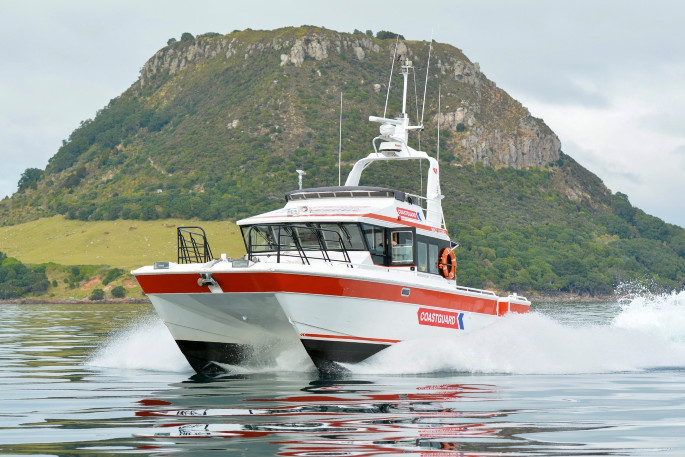Tauranga Volunteer Coastguard is getting busier and busier, with rescue numbers almost doubling in the last four years and international travel restrictions prompting more on-water activity here.
That's why construction will soon begin on a new, purpose-built rescue vessel for the coastguard – with the current vessel, TECT Rescue, which TECT contributed $250,000 to in 2006, struggling to meet the increasing demands of the area.
'Last year we did 80 per cent more rescues than we did in 2016,” says Tauranga Volunteer Coastguard's operations manager Dane Robertson.
'TECT Rescue is 16 years old and, while well-utilised the maintenance and repairs to ensure it is ready 24/7 have become cost-prohibitive. A new vessel is required to keep up with the region's needs and ensure our loved ones' safety out on the water.”
TECT has again stepped in to help the coastguard, in April approving $650,000 in funding to support construction of the new rescue vessel, a $2.25 million project.
The coastguard has raised $750,000 of the funds themselves, with additional support from local sponsors. The build also has financial backing of Coastguard New Zealand, as it's seen as critical to coastguard operations – not only in Tauranga, but the wider Bay of Plenty and Coromandel regions.
During the last financial year, Tauranga Volunteer Coastguard's 60 volunteers answered 30,810 radio calls, carried out 219 vessel assists, and brought 550 people home safely.
Game-changer
Dane says TVC has been working closely with vessel designer, Teknicraft, to design a 14-metre catamaran that will address the current boat's limitations and better support joint-agency tasks with greater capacity to transport teams of police, medics and crew.
Dane says the new vessel's speed and fuel economy will be a game-changer.
'The new boat will get to Mayor Island at least 40 minutes quicker," says Dane.
'If you were in trouble, 40 minutes would make a huge difference. It will be cheaper to run, and its cruising speed will be what is TECT Rescue's maximum speed.
'So, it will cruise faster and use less diesel doing so. Plus, it will be a bit more workable in terms of its physical layout, meaning safer and more comfortable working areas for crew.
'Underneath, it will have foil technology that raises the hull up out of the water, which will result in a smoother ride," says Dane.
'We are grateful for TECT's support. The new boat will have a huge impact and is greatly needed in our area.”
Construction begins in July and is expected to take 14 months.



0 comments
Leave a Comment
You must be logged in to make a comment.